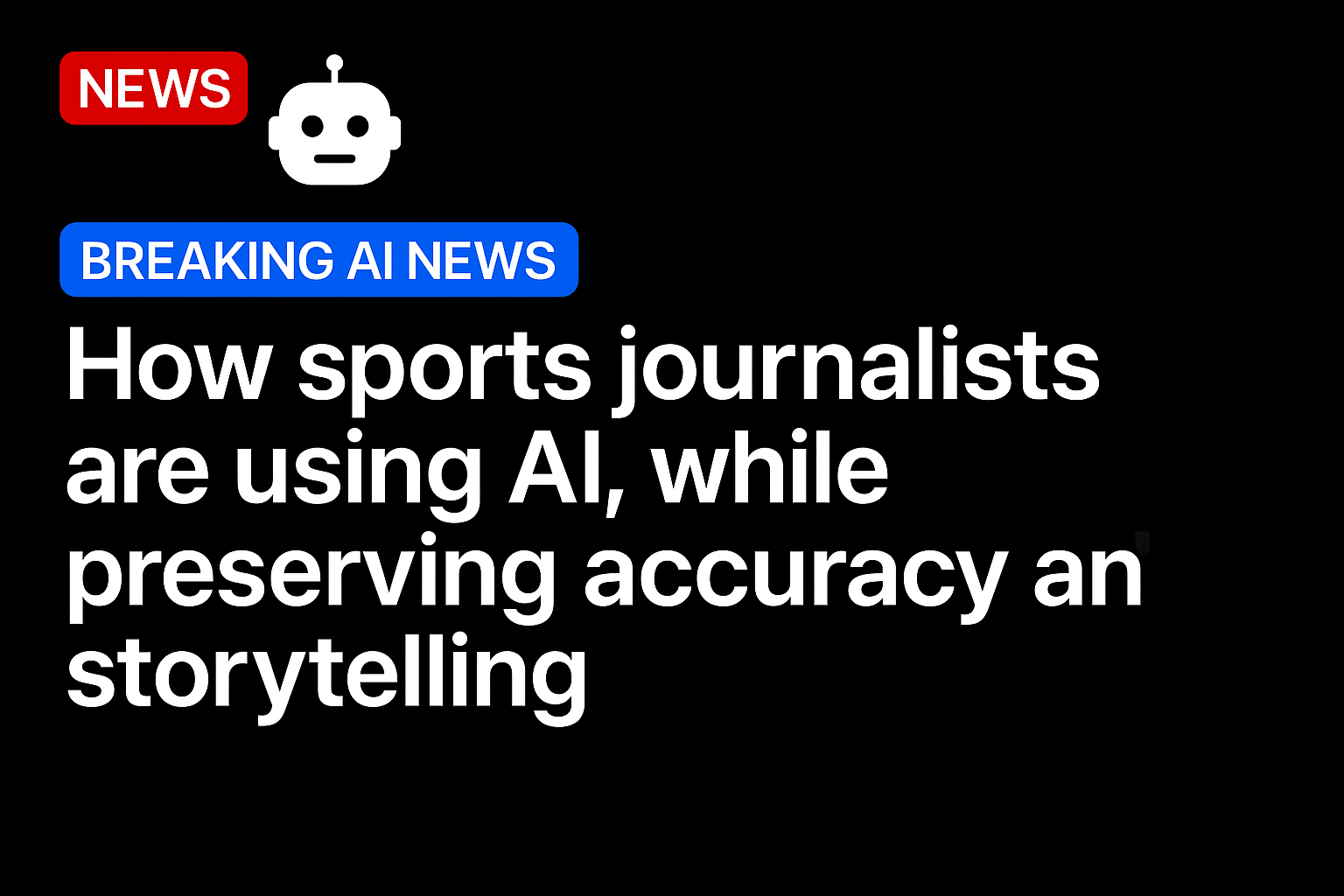CLEVELAND, Ohio – Sports journalists are embracing the efficiency of artificial intelligence while maintaining accuracy and the human elements that define their storytelling.
During a panel on “Reclaiming the Craft of Writing in the Age of AI” at the National Association of Black Journalists conference, ESPN senior NBA writer Mark Spears shared a funny story that highlighted the technology’s potential dangers when he asked AI what his net worth was.
“According to AI, I have an estimated net worth of at least $19 million,” Spears said. “I looked at my bank account and a lot of zeros were off of that number.”
The panel of sports journalists, which included Ethan Sands of cleveland.com, Mike Curtis of the Dallas Morning News, C.L. Brown of the Louisville Courier Journal, and Michaela Gilmer of TNT Sports, largely agreed that AI has its place in the industry – but with significant limitations.
“I’m for the use of AI as long as it’s a tool, as long as it’s a part of what you’re doing, not driving everything you’re doing,” said Brown, who has covered sports for 30 years.
Sands, the beat writer for the Cleveland Cavaliers and host of the “Wine and Gold” podcast, echoed Brown’s response.
“AI offers both benefits and challenges,” Sands said. ”We must understand how to engage with it while still doing our own research.”
Panelists highlighted several examples of AI’s shortcomings, including an article that incorrectly reported a player’s vertical leap at the NBA draft by using measurements from another player. In another case, Gilmer recounted how AI-derived information led to a false report about a player’s death.
“That player is very much alive,” she said. “Companies have to issue apologies. It’s really inexcusable because that means you didn’t check your source, and you didn’t go back and do your own research.”
Despite these concerns, the panel of journalists acknowledged AI’s benefits for tasks like transcription, data analysis, and improving efficiency.
The panel particularly stressed the irreplaceable value of human presence in reporting.
Curtis, who covers the Dallas Mavericks, highlighted the “color, the creativity, the growth that you can see from people writing” that comes from being present to develop relationships with sources. Other panelists agreed that being physically at games and in locker rooms with players is an advantage over AI because it gives them opportunities for follow-ups and feature stories.
Media professionals are aware that technology will improve with increased usage. However, AI can’t replace depth of knowledge or experience.
“We have to create our own value to make sure we become as irreplaceable as possible,” Brown said.
Journalists offered advice to aspiring reporters and college students, cautioning them not to become overly dependent on AI early in their careers, even when schools encourage it.
Source: https://www.cleveland.com/

